 I don’t know if I’ve mentioned it before, but I’m married to a builder. Over the years I’ve observed (judging by the level of bitching) that it’s easier to start from scratch than it is to retrofit. Still, there’s a way to do it well, and a way to screw it up.
I don’t know if I’ve mentioned it before, but I’m married to a builder. Over the years I’ve observed (judging by the level of bitching) that it’s easier to start from scratch than it is to retrofit. Still, there’s a way to do it well, and a way to screw it up.
I think that’s true of writing as well. I’ve already talked about sequels, and how genre writers in particular have to be careful to remember the details of the worlds they’ve created previously. However, when an author who’s twenty years into a series gets the colour of someone’s eyes wrong, or forgets that they’ve once said their protagonist was an only child, you have to figure that’s an honest mistake, and cut the writer some slack.
But what about conscious, deliberate changes? I’m not talking about reboots, or spin offs. They have their own problems. And I’m not talking about the changes that naturally occur when you’re adapting one media to another. No, I’m talking about sequels where the writer/creator seems to think that no one will remember what’s already been established. You know, where the writer/creator says “Oh yeah, I know I said she was an only child, but now I need her to have a brother, so she does.”
Yes, I’m talking to you, George Lucas.
…
Read More Read More
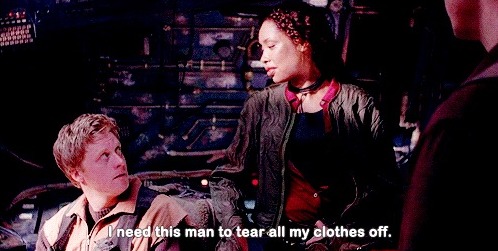 I recently had a wedding anniversary, so that naturally led me to think about married characters. There don’t seem to be many of them.
I recently had a wedding anniversary, so that naturally led me to think about married characters. There don’t seem to be many of them.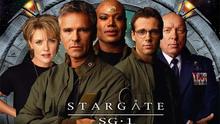 I think we can all remember a time when, with the possible exception of soap operas, TV shows had one lead character. Even when it was a sitcom, and the lead character was married, there was still only one lead. Often these shows were easy to spot because they identified the character in the title of the show. I Love Lucy. The Dick van Dyke Show. The Rifleman.
I think we can all remember a time when, with the possible exception of soap operas, TV shows had one lead character. Even when it was a sitcom, and the lead character was married, there was still only one lead. Often these shows were easy to spot because they identified the character in the title of the show. I Love Lucy. The Dick van Dyke Show. The Rifleman.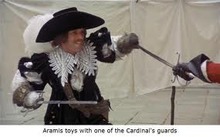 The Three Musketeers (1973, directed by Richard Lester)
The Three Musketeers (1973, directed by Richard Lester) I don’t know if I’ve mentioned it before, but I’m married to a builder. Over the years I’ve observed (judging by the level of bitching) that it’s easier to start from scratch than it is to retrofit. Still, there’s a way to do it well, and a way to screw it up.
I don’t know if I’ve mentioned it before, but I’m married to a builder. Over the years I’ve observed (judging by the level of bitching) that it’s easier to start from scratch than it is to retrofit. Still, there’s a way to do it well, and a way to screw it up.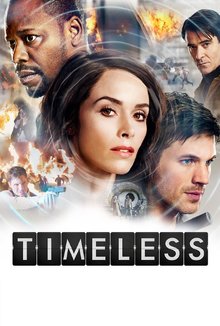 It’s not often that we in the Fantasy and SF community get two time-travel related productions – the movie Arrival, and the TV series Timeless – at once. Even better, we’re being served two different theories of time, and time travel. (There might be some spoilers for those of you who haven’t seen either film or TV show, so watch out.)
It’s not often that we in the Fantasy and SF community get two time-travel related productions – the movie Arrival, and the TV series Timeless – at once. Even better, we’re being served two different theories of time, and time travel. (There might be some spoilers for those of you who haven’t seen either film or TV show, so watch out.)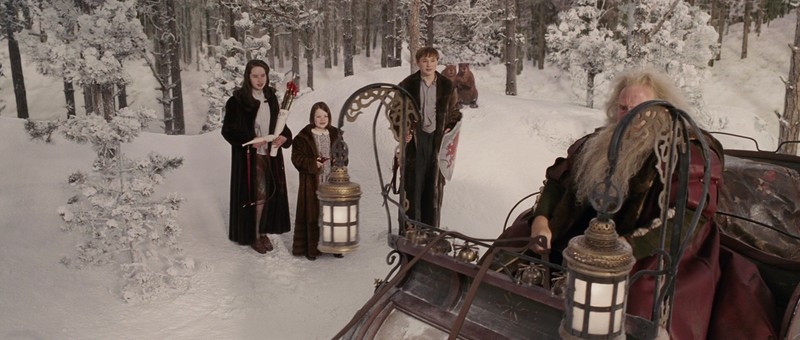
 Lately I’ve been looking at adaptations, both novel-to-movie, and novel or movie to TV series. I been talking about them in terms of what I thought was successfully done, and occasionally pointed at my favourites. In their comments people observed that while they agreed, for the most part, with my suggestions, they had suggestions of their own. All of us had to admit, however, that we were sometimes unfamiliar with either the source work, or the adaptation, or even both.
Lately I’ve been looking at adaptations, both novel-to-movie, and novel or movie to TV series. I been talking about them in terms of what I thought was successfully done, and occasionally pointed at my favourites. In their comments people observed that while they agreed, for the most part, with my suggestions, they had suggestions of their own. All of us had to admit, however, that we were sometimes unfamiliar with either the source work, or the adaptation, or even both.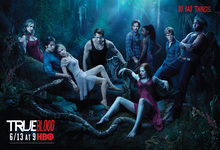 Not long ago I posted about my top ten novel-to-movie adaptations, (see
Not long ago I posted about my top ten novel-to-movie adaptations, (see 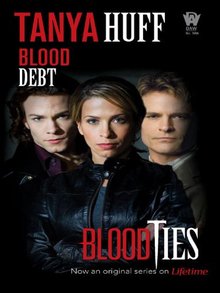 As Goldman says about adapting novels for film, the TV series should retain the intention of the original material, but perhaps the issue of length isn’t as problematic. On the contrary, the more of the original source’s complexity that can be kept, the better, as TV adaptations can explore avenues and characters in ways a movie can’t. On the other hand, series requirements sometimes lead to unexpected changes to the source material.
As Goldman says about adapting novels for film, the TV series should retain the intention of the original material, but perhaps the issue of length isn’t as problematic. On the contrary, the more of the original source’s complexity that can be kept, the better, as TV adaptations can explore avenues and characters in ways a movie can’t. On the other hand, series requirements sometimes lead to unexpected changes to the source material. I know I’ve mentioned before that I’m a big fan of the original anthology, and I’d like to take the opportunity to draw your attention to two new ones that have crossed my table in the last month or so.
I know I’ve mentioned before that I’m a big fan of the original anthology, and I’d like to take the opportunity to draw your attention to two new ones that have crossed my table in the last month or so.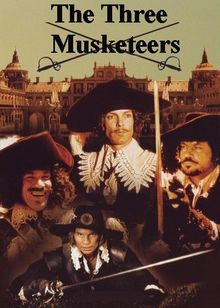 Last time I was having a look at William Goldman, both his screen and novel writing. You can see the whole post
Last time I was having a look at William Goldman, both his screen and novel writing. You can see the whole post